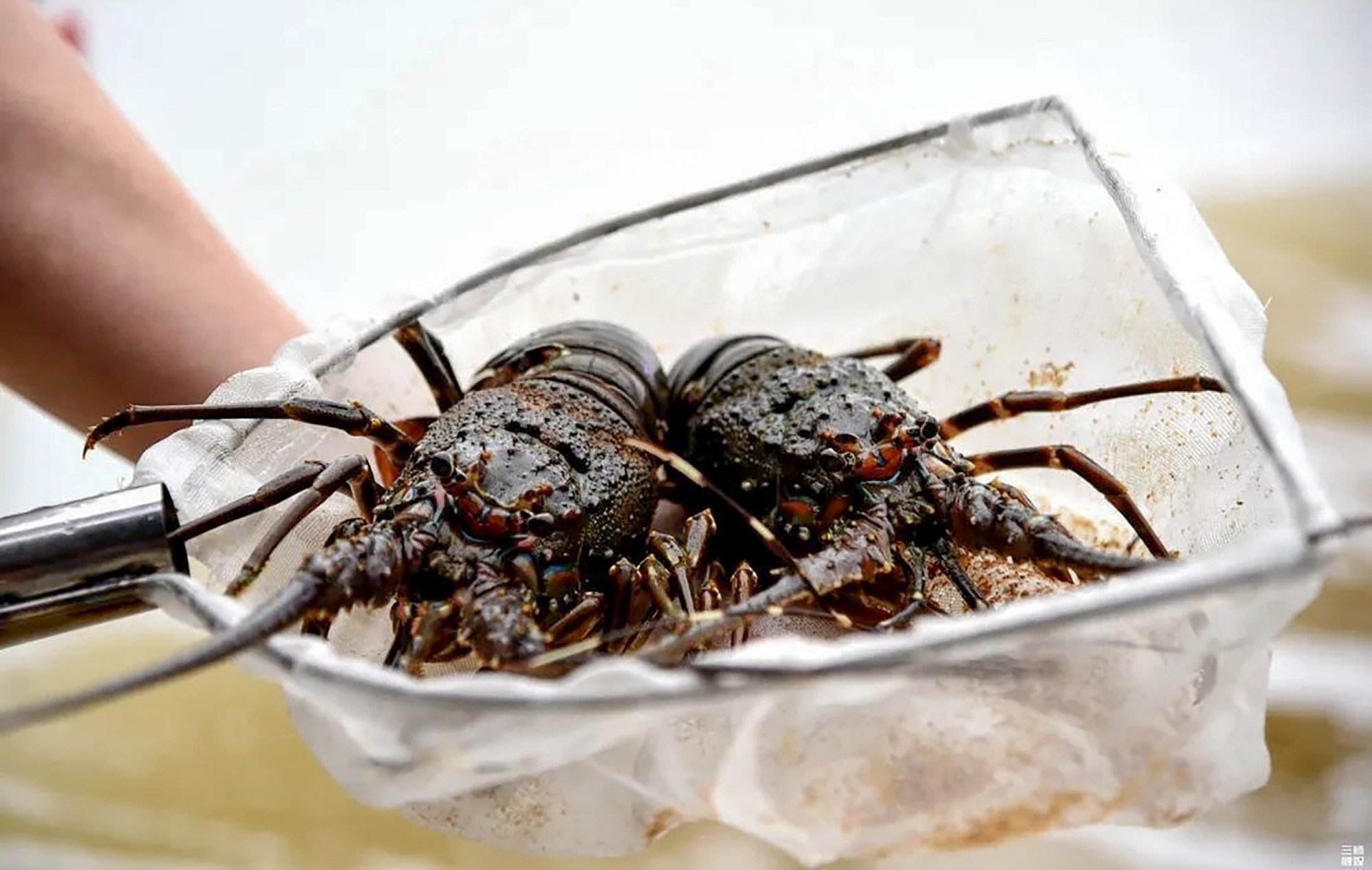China’s inland Xinjiang Uygur autonomous region has started to develop seawater aquafarming, including freshwater fish, king prawn, abalone and lobsters, as part of efforts to seek technological breakthroughs in agriculture.
Aquaculture firm Xinjiang Shi Shi Xian, which was founded in the rural region in 2022, said it has succeeded in a pilot project to develop technology to simulate seawater in its fishery located on the edge of a desert.
The saline level – a mixture of salt and water – in southern Xinjiang is naturally “close to the level in seawater”, said project lead Chen Jiazhen.
This will facilitate artificial seafood farming, with the company aiming to increase access to seafood in inland areas of China, according to an article by the China Business Herald that was published by the China Association for Science and Technology earlier this month.
We make use of the saline-alkaline land and adjust the level of probiotics and other micronutrients
“We make use of the saline-alkaline land and adjust the level of probiotics and other micronutrients added to the water that will simulate the different seawater environments needed for different breeds,” Chen said.
The article was released in mid-August, but has been circulated recently amid concerns over seafood security following the release of water from the Fukushima nuclear power plant.
Advertisement
The company has around 60 indoor ponds, with greenhouses used to compensate for the temperature differences in Xinjiang.
The company has developed eight different types of seafood, which are first bred indoors before being moved to outdoor ponds, although it is unclear if the products have been made available to consumers.

Chinese state media hailed the expansion of seafood production in Xinjiang as a “role model example” amid China’s push for academics and local officials to look for ways to “modernise agriculture” and “provide security for the supply of agricultural products”.
China has long been the world’s largest seafood producer and it accounts for at least 18 per cent of seafood caught globally, according to the United Nations.
Salty soil, no problem. China hails record rapeseed output in food security push
Salty soil, no problem. China hails record rapeseed output in food security push
Xinjiang is one of the seven locations dedicated as pilot areas for producing saline-alkali tolerant rice – better known as seawater rice – to increase crop output.
Advertisement
However, its arid environment also challenges the sustainability of its agricultural development due to a lack of water.
Fish farms in Xinjiang have previously produced freshwater seafood, as companies benefit from the water supply from its high altitude lakes, which are fed by melting snow from its mountainous areas.
Advertisement
The Xinjiang government is aiming to increase its annual output of aquatic products to around 30,000 tonnes by 2025.
Overall, China is aiming to lift its aquatic production to 69 million tonnes by the same year.
Advertisement

